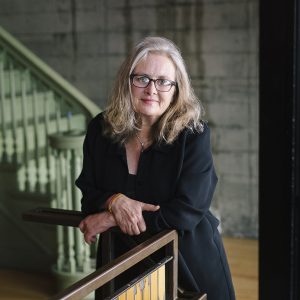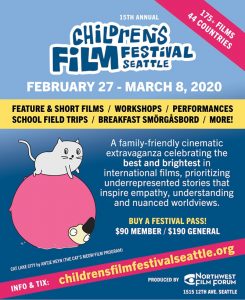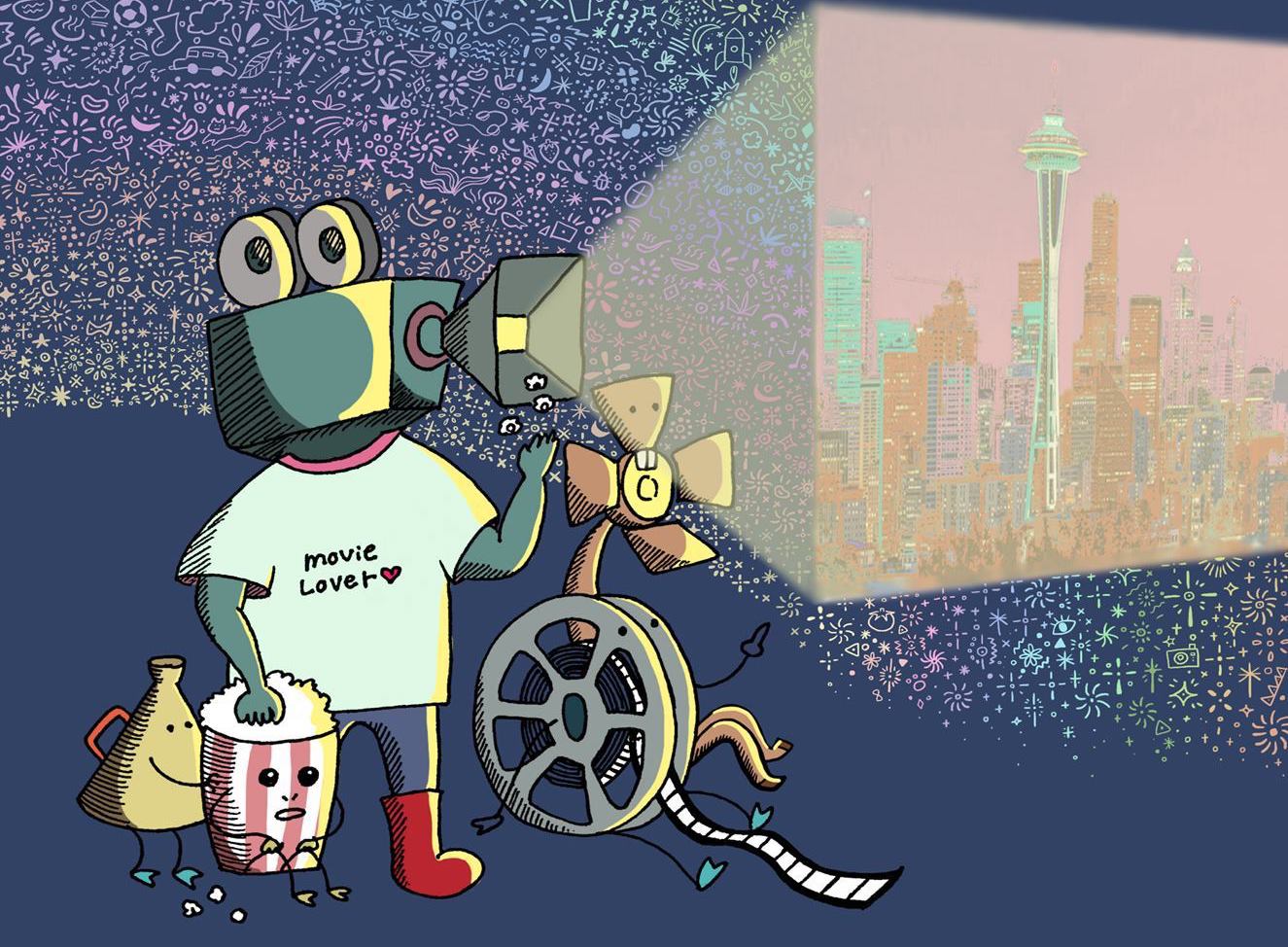The Children’s Film Festival Seattle kicks off in just a few days, this Thursday (February 27) with 175 feature-length and short films from 47 different countries, spoken in 28 different languages.
Putting it all together is an impressive feat by any objective measure. As my friend and SunBreak colleague Morgen Schuler wrote here, “This festival opens kids to the possibilities of cinema, not only as a life-long cinephiles, but to inspire them to become filmmakers or creators. Yes, I sound super cheesy and optimistic, but isn’t that what being a kid is all about? All we want for our favorite half-pints is to see them happy and successful, so at the very least this’ll be a happy distraction from the frustrations of the world.”
I wanted to learn a little more about what goes into making this festival and how it has been going for fifteen year (!), so I called festival director Elizabeth Shepherd to ask her a few questions. And then my tape recorder lost the interview, so I had to call her back a few days later and ask basically the same questions again. It wasn’t my finest moment, but there is a lot to learn below.
Can you tell me what you’re most excited for with the festival this year?
I’m really excited that we have more short films than we’ve ever had before and more thematic kind of program, different kind of programs than we’ve ever had before in terms of our short film block. We have four different language-specific programs, which is really fantastic, we’ve never had that before. We have a program that is all Japanese, a program that is all Spanish, a program that is all German and a program that is all French. So, these programs are for language learners and they’re also for families who speak those languages at home and school groups who are immersed in this kind of thing at school. So we’re really excited to offer those programs in particular.
We also have a program this year that i’m super excited about which is called “Rainbow Roar.” And it’s a short film program that is very specific in its focus on LGBTQ stories, kids stories. And that’s something new in our festival, we’ve never had a sort of laser-focus on LGBTQ stories before for kids. We’ve included some films that we’ve had on this subject wherever we could, programs about identity are really strong in our festival. But this is the first time that we had this really specific program about Rainbow Kids and we’re really excited about it. And we also have three different programs in our festival based on environmental themes, which is something that’s really important for kids, it’s their world and they’re aware of what’s going on and they know about climate change and this is a different kind of expression. We also have a feature-length documentary about kids, called Microplastic Madness which is a story of some elementary-age children in Brooklyn, New York who are making a huge difference in the footprint of their own school cafeteria in terms of eliminating plastics and having trash-free lunches and they’re fighting to extend what they’re doing in their school to every school in New York. And so it’s really an inspiring story and kind of shows how kids are making a difference. So these are things that are specific to this year and this time that we’re all living in and that kids are growing up in. So we want to be able to speak directly to them.

That’s excellent. I think we were talking about the microplastics documentary before and that just sounds so interesting and like something you could really see inspiring to lots of young people, seeing that people just like them are really making a difference.
Yeah, I mean we just want kids to recognize themselves in the films that they see. And also at the same time, they’ll recognize themselves because it’s such an international program, we have 47 countries represented in our festival. And so there’s a way for them to really get a broad view of different cultures in the world and what they hold in common with children in other cultures and what the differences are and to see the world in a really different way than our sort of isolated, insulated Seattle-centric view that we might have. This is a program that is truly international and I think that that’s really important to focus on in terms of why it’s great for kids.
I wanted to ask you if you could tell me how you curate a festival like this?
Well… It takes a long time. We have a committee that meets together to go over entries for our festival and also we have people working in the summertime on researching other festivals that are like ours. There’s a whole circuit of international children’s films that we’re a part of and so we were able to look and see what people are doing worldwide and what looks inspiring, what looks great, what’s won prizes, and then we invite those films to participate. And at the same time we get just lots of submissions. So we had something like 550 submissions from around the world that we watched and, for the most part, they were all really great. And we curated a program that has 175 of the films in it. So we did well with our entries and our outreach in terms of findings what was out there.
That’s like 25 to 30 percent of submissions getting in, that’s pretty astonishing!
It’s pretty good, yeah. I think we’ve been around long enough now and I think it’s because we so heavily research and curate and talk to our colleagues worldwide and try to see as many films as we can, so we wind up with a really good and inspiring selection.
Definitely.
I want to talk about something else before I forget that I was super excited about in terms of this year’s festival. That is that we’re doing something else that’s different this year, we’ve never done this before in 15 years, we’re having an entire day that is off-site, not at Northwest Film Forum but rather we’re going into the neighborhood of Columbia City, which is so vibrant. We are doing an entire day of programming there at Rainier Arts Center and partnering with them to present the final closing day of the festival at Rainier Arts Center which is in Columbia City and it’s a whole different neighborhood. It just makes it so much more accessible to so many more people in Seattle to take our programming there.
We’re utilizing the whole building. We’ll be having workshops downstairs – they have a great downstairs – and that’ll be the site of workshops. And also our traditional pancake breakfast which is a big tradition of our festival where we always have a morning where we serve pancakes and then everybody goes to watch movies when they’re feeling really full and happy and you’ve cooked them breakfast. We’re going to do that downstairs as well and then have the movies upstairs. So it will be a really special day. And its closing out with a performance by students of Spectrum Dance school. And we’re showing a documentary called Moving Stories, which is about how dance really changes the lives of groups of children worldwide who have been through a lot. Who might be living in poverty, who might have been migrant, there are different groups that are represented there and it shows how really dance can change lives, save lives, how art matters. We’re really excited about that.

One thing I was thinking about that I wanted to ask you was about getting around the hegemony that Disney and Pixar have over children’s programming, and has for at least as long as I’ve been alive.
It’s a much more nutritious meal that we’re serving here than what people are going to see just heading to the multiplex or at home surfing, trying to find something good for the family. This is all very thoughtful programming, it’s programming you can’t really see anywhere else, and it is very different. It looks different, it sounds different, some of the films have a different pace. It kind of just gives you a sense of all the different kinds of storytelling that is possible through the medium of film and it broadens kid’s understanding of what film can be and what it can mean. I think that’s really important cause they’ll be using media their whole lives, they’ll be making all kinds of films themselves, probably. This is something that they’re going to need as they grow older to understand what the possibilities of the medium are.
You talked above about the events and programs your excited for, can you tell me a little bit about some of the other individual movies or programs you’re excited for, or that you think people should try to check out?
Sure. We have a very fun opening night program, it’s all about cats, it’s animation about cats and it’s just so delightful, from so many different countries and such stellar animation and so anybody who loves cats and wants to just revel in cats, whether they’re adult or child or anyone, they can come to this wonderful program we have called “The Cat’s Meow.” That’s our opening night.
We also have some wonderful filmmakers who are coming to our festival and I hope that people will look at our website and look and see who our guests are. We have a whole page that is devoted to our festival guests and want people to understand that they’re going to come here and be able to hear how their films were made. Not only to watch the films, but to meet the people who took the time and the care to make these films. Several of them are going to be here.
There’s a feature film from the U.S. called Team Marco that we just fell in love with when we watched it. It’s actually about something that a lot of parents care about and kids struggle with is how much screen time is OK. And Team Marco is a story, it’s a film about that and it’s about a boy who just can’t … It’s about a boy who needs to get away from screens. He’s way over-obsessed with screens and his grandfather begins to take care of him and introduces him to this very ancient game of bocce ball and it starts all these adventures, inter-generational adventures. And that filmmaker is going to be here.
We also have a film from Australia which is a new film called “H is for Happiness,” this is the U.S. premiere of this film. And its based on a book that people may have read called The Categorical Universe of Candice Phee, that is a young adult book. And it’s a wonderful, fabulous, well-made film about a girl who has to help her family overcome some things and at the same time sort of find herself and grow up. So, I highly recommend that one.
We have a film from Germany and it’s about another strong girl. It’s called Rocca Changes the World. And the filmmaker from Germany, Katja Benrath, is going to be here for that film as well. That’s on Sunday, March 1. We also have another program that I’m just in love with called “The Color of Dreams.” It’s beautiful animation from around the world. The things that just took our breath away we put in that program. So I would recommend that.
We have a fabulous film from South Africa called Kings of Mulberry Street which is very fast-paced, it’s recommended for ages 11 and up. And it’s about two boys who have to save their neighborhood. There are certain themes that are present in a lot of children’s film but this one is told in such a great way because the two boys in the film are in love with Bollywood films.
All of our feature films are terrific this year. We have a smaller selection of feature films which means we only chose the one we just were completely in love with. I mean, it’s a real film festival. It’s everything that every film festival has, it has filmmakers and talkbacks with audiences but it’s all focused on this wonderful audience of the next generation and its really fulfilling to create something just for them.
We also have workshops, which are on the website. We’re having some really great workshops this year and I think they’re worth mentioning.
And how did you end up in Seattle and putting together this festival?
Well this has sort of been my niche career. I have found this lovely place in the world of film to reside. I was the director of the Chicago International Children’s Film Festival in the 1990’s and then I moved to Seattle and quickly Northwest Film Forum found me and asked if I’d be interested in heading up their children’s film festival which was nascent and growing. There has been another children’s film festival here for a couple years called “The Childish Film Festival” which was created by one of the founders of Northwest Film Forum. They needed somebody to sort of take over that concept and create a children’s film festival. And so that’s what I’ve been doing for the past 15 years and it’s been wonderful.
Doing it as long as I’ve done it, I’ve been able to see kids grow up here. I’ve been able to see how this has become a family tradition for a lot of families. There’s one kid that’s on our jury now. We actually have three children’s juries. Three youth juries that decide all the prizes for our festival and this kid had been coming to the festival from the time he was two. Every year, I’d see him and his mom. There they were, he’d come up to me and it was a big deal for him to come because it was like a family tradition, it was something he did every year, it was special. He usually had some little flower for me or something that he would hand me and it was just delightful. And then last year he came up to me at the age of 14 and said I’m ready to be on the jury. I was just so thrilled because it was like, this meant something, I think it means something to the people who come year after year. And I think it’s become a tradition.
I so relate to and admire the parents who bring their kids here, and the grandparents and the aunts and uncles because it really is an adventurous thing to do. it’s something that you’re not sure what you’re going to see. What you’re really giving the kids is a chance to have an adventure in film that is unexpected: it might take you places that you had never dreamed, it might be a film you’ll never forget, it will probably be a film you’ll never see again. So I mean, it’s very, very special and I’m glad I had the opportunity to do it all these years.
I think there’s a real important role that smaller films play for children because it could inspire them to want to make movies in the future. I mean, as much as I loved Frozen 2, it’s still a Disney juggernaut that probably costs tens of millions, if not over a hundred to make. I think the young people watching that and saying “I can do that!” is limited, but maybe seeing a smaller film and seeing the director talk about how they made the movie could be more inspiring?
Right. We want them to see what all the possibilities are. One of the possibilities is that you could see something that is hand-crafted and small and so artfully made that and have that experience of seeing that kind of beauty on film rather than something that costs a million dollars. And that’s empowering to kids because then they can realize that this isn’t just something that takes a whole infrastructure to build. Film is accessible, it’s an accessible artform and people are making things in all kinds of different ways around the world.
Another thing is they might learn is that film isn’t necessarily a medium that’s just there to entertain them. It’s there to show them things that they might not have seen, it’s there to help them practice their languages, it’s there for so many different reasons, as many reasons as there are films. And to learn about an issue that they didn’t know existed until they got here. And so it’s all about seeing the world and feeding your mind which I think now more than ever is so important for kids, to have a better understanding of the world and the stories that we tell about it. That’s why I think it’s important and why I admire the people who bring their kids here.
{The Children’s Film Festival Seattle opens on Thursday, February 27 and runs through Sunday, March 8. Tickets, showtimes, guests, and everything else you can think of can be found here.}



